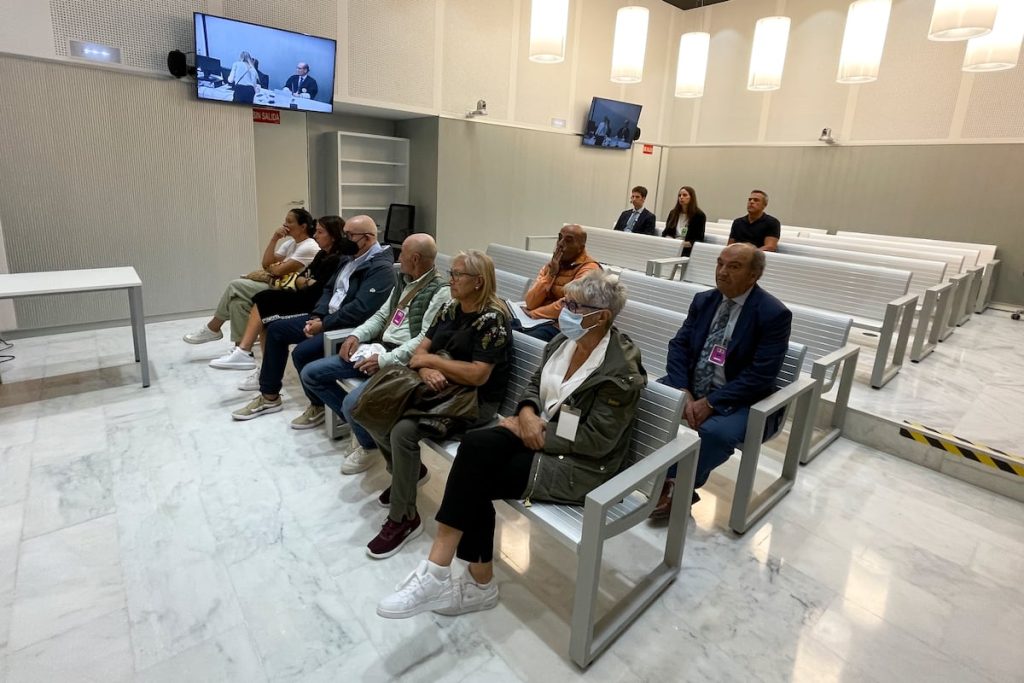The Charlines Clan, the large family involved in the drug trafficking business in Galicia that created an empire under the shadow of tobacco and drug smuggling and most of whose members ended up in prison, has won a second legal battle after a long process for money laundering that has been haunting them since 1995, when former judge Baltasar Garzón ordered the preventive seizure of their extensive assets valued at 30 million euros at the time. The National Court has acquitted six members of the family for lack of evidence who were tried for participating in five money laundering operations totaling over 15 million euros, detected in Galicia, Switzerland, and China between 2000 and 2010. The process began with Operation Repesca, a procedure initiated to recover the assets that the Charlines managed to keep after a historic Supreme Court ruling in May 2008 that rejected their confiscation by the State. This is a new blow for the Anti-Drug Prosecutor’s Office, convinced that the family managed to repurchase some of the seized assets through frontmen in public auctions.
In the sentence, the judges of the fourth section also acquitted two lawyers and a businessman who were tried alongside the family members as part of the criminal network that has now been dismantled due to lack of evidence. Josefa Charlín, the eldest daughter and right-hand woman of the clan’s former patriarch Manuel Charlín, who died in a home accident in 2021 and was also implicated in this case, has been acquitted along with her siblings Teresa, Óscar, and Melchor, as well as her daughter Noemi Outón and her niece Natalia Somoza. The Anti-Drug Prosecutor’s Office, which can appeal the sentence, had requested prison sentences ranging from six to four years and fines ranging from 5 to 10 million euros for the nine accused, including the two deceased due to other reasons.
The trial focused on five alleged money laundering operations, including the auction of a seafood purification plant in A Illa de Arousa, the acquisition of a seafood processing and transformation plant in China in the years 2000, 2008, and 2009, as well as the opening of bank accounts in Swiss banks. The court criticized the lack of concrete evidence and individualization of the conduct attributed to the accused by the prosecution. It pointed out that the evidence presented did not support the prosecution’s claim that the money involved in the operations came from drug trafficking. The judges highlighted the lack of specificity and individualization in the charges against the accused in each operation.
The investigation known as Operation Repesca attempted to prove that the clan still had a fortune despite being believed to be in ruin, after facing multiple judicial processes and lengthy prison terms for almost all its members. The prosecution also tried to establish that members of the group committed blatant price manipulation in public tenders and auctions. This latest attempt to recover the properties of the powerful drug trafficking family is rooted in a Supreme Court ruling 16 years ago that partly favored the clan’s interests. The defense argued that not all the family’s money was of illegal origin. The Supreme Court based its interpretation on a statement by the Prosecutor that suggested the money used by the Charlines came partly from drug trafficking.
Despite the setback of losing properties like the Vista Real estate (sold to the City Council of Vilanova in 2010 through a public auction for over a million euros), the Charlines family, through Teresa Charlín, managed to recover other assets and shellfish businesses, even bidding through frontmen. This was done despite not having paid the hefty fines imposed by the State for money laundering crimes and confirmed by the Supreme Court. The investigation and legal battles surrounding the Charlines Clan highlight the challenges and complexities involved in prosecuting organized crime networks and their efforts to evade justice and retain their illicitly gained assets.


